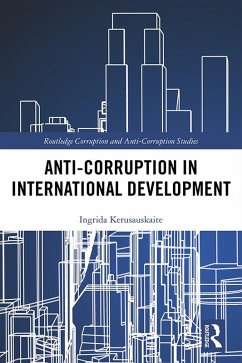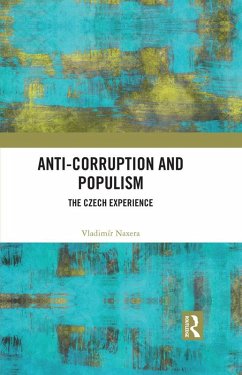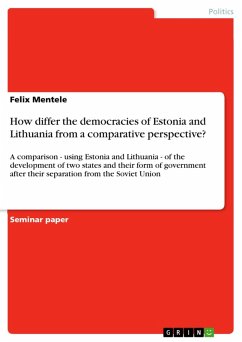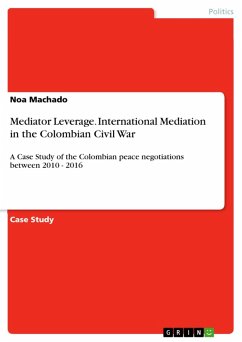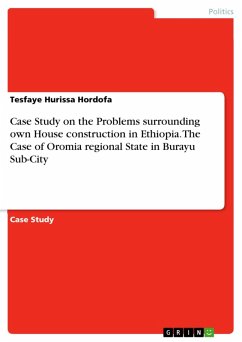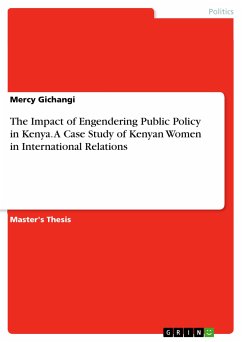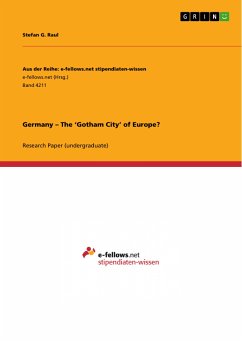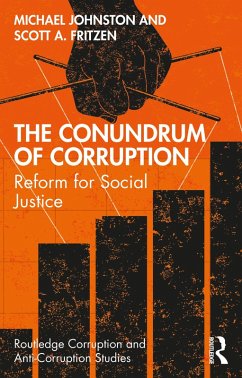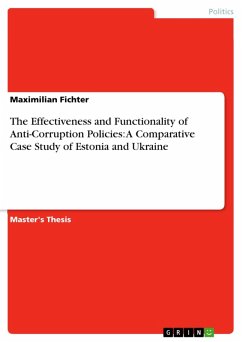
The Effectiveness and Functionality of Anti-Corruption Policies: A Comparative Case Study of Estonia and Ukraine (eBook, PDF)
Versandkostenfrei!
Sofort per Download lieferbar
Statt: 47,95 €**
36,99 €
inkl. MwSt. und vom Verlag festgesetzt.
**Preis der gedruckten Ausgabe (Broschiertes Buch)
Weitere Ausgaben:

PAYBACK Punkte
0 °P sammeln!
Master's Thesis from the year 2021 in the subject Politics - General and Theories of International Politics, , language: English, abstract: Corruption as a phenomenon is broadly explored and measured through a variety of different approaches to indicators. Corrupt practices, their causes, and effects vary from country to country. Similarly, the approaches to anti-corruption reforms, their design, and implementation practice differ in different country contexts. While the causes of corruption and their effect on the quality of governance are widely explored, the mechanisms that might influence ...
Master's Thesis from the year 2021 in the subject Politics - General and Theories of International Politics, , language: English, abstract: Corruption as a phenomenon is broadly explored and measured through a variety of different approaches to indicators. Corrupt practices, their causes, and effects vary from country to country. Similarly, the approaches to anti-corruption reforms, their design, and implementation practice differ in different country contexts. While the causes of corruption and their effect on the quality of governance are widely explored, the mechanisms that might influence and determine the functionality and effectiveness of anti-corruption reforms remain an underexplored subject in social sciences. As a consequence, this paper will test different branches of new institutionalist theory against the empirical evidence of the comparative qualitative case study of anti-corruption policies in Ukraine and Estonia. Given the institutional similarities at the beginning of both countries' independent political trajectories, Ukraine and Estonia expose differences in how their anti-corruption policies are designed and how effective they are given their institutional context. By comparing the cases of anti-corruption reforms in Ukraine and Estonia, this thesis seeks to provide answers to the following research question: What factors explain the difference in the effectiveness and functionality of anti-corruption policies in Estonia and Ukraine? On 13 January 2021, a corruption scandal rattled Estonia. The Estonian prime minister, his center party, and the party's secretary-general were named as suspects in a criminal investigation. The investigation revolved around property development in Estonia's capital Tallinn. A development project in the city's port district had received a state loan for enterprises hit by the Covid-19 pandemic. The investigation centered on whether people associated with the government used their political influence to help the developers to receive a large donation in party funds in return. The prime minister eventually resigned over the investigation.
Dieser Download kann aus rechtlichen Gründen nur mit Rechnungsadresse in A, B, BG, CY, CZ, D, DK, EW, E, FIN, F, GR, HR, H, IRL, I, LT, L, LR, M, NL, PL, P, R, S, SLO, SK ausgeliefert werden.




